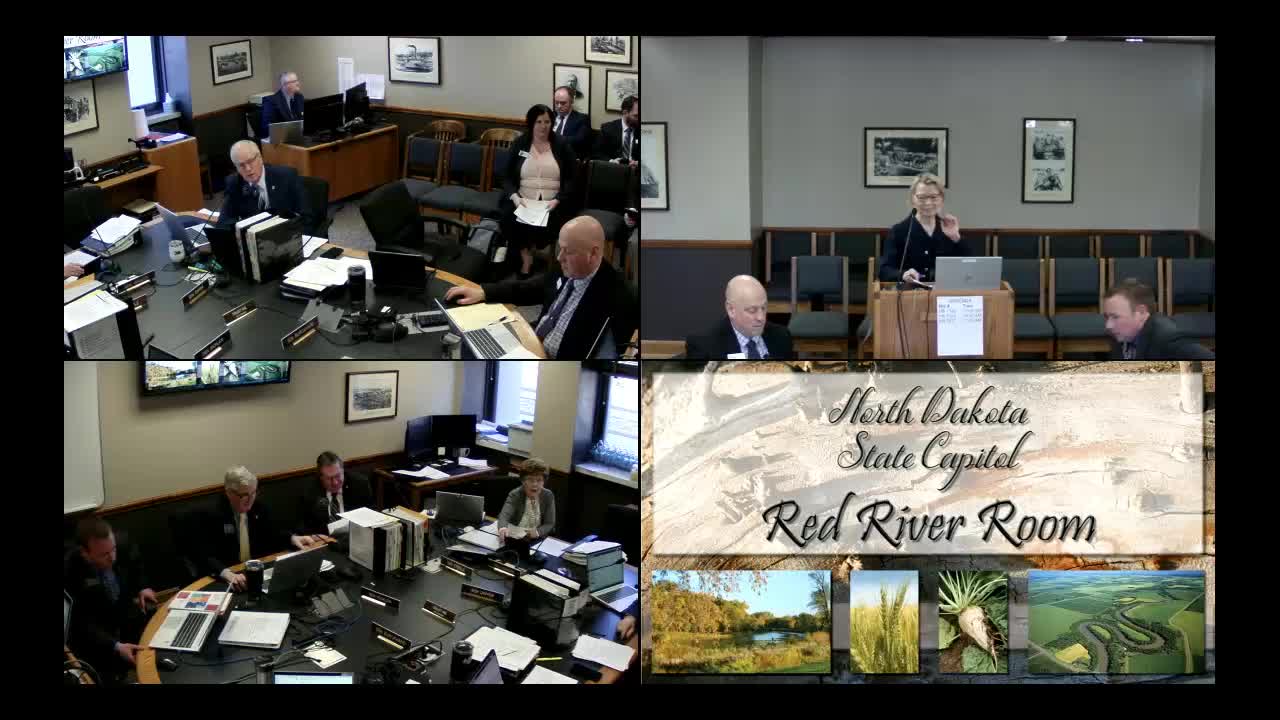Lawmakers weigh $75,000 study of irrigation and drainage economic impact
Get AI-powered insights, summaries, and transcripts
Subscribe
Summary
Representative Cynthia Schreiberbeck asked the Senate Appropriations Government Operations Division to approve up to $75,000 to hire a consultant to study how irrigation and drainage affect agricultural productivity and the state and local economies.
Representative Cynthia Schreiberbeck introduced House Bill 15 31, asking the Senate Appropriations Government Operations Division to appropriate up to $75,000 for an economic study on the impacts of irrigation and drainage practices on agriculture and state and local economies.
Schreiberbeck said the study would include an assessment of the potential economic benefits of increased irrigation and improved water conveyance, the ramifications of failing to implement irrigation originally contemplated under the Pick‑Sloan Flood Control Act of 1944, and a comparison of irrigated and non‑irrigated land productivity.
Danny, executive director of the North Dakota Irrigation Association, told the committee older studies are out of date and an updated analysis would help the state quantify what it lost where promised irrigation was not developed. “We would like to know what the number is that the state could have benefited from if that irrigation was developed,” he said, suggesting the data would support federal outreach and policy actions.
Other agricultural groups testified in support, calling the appropriation modest and useful. Committee members asked whether the study would update older NDSU or other analyses, whether it could quantify hydropower revenue differences tied to irrigation plans, and how the State Water Commission’s existing data would be incorporated. Witnesses said relevant state datasets could be used and that new irrigation technologies and water‑management approaches should be included.
The hearing closed with no recorded votes; supporters said the study would be a relatively low‑cost step to inform larger water and agricultural policy debates.
